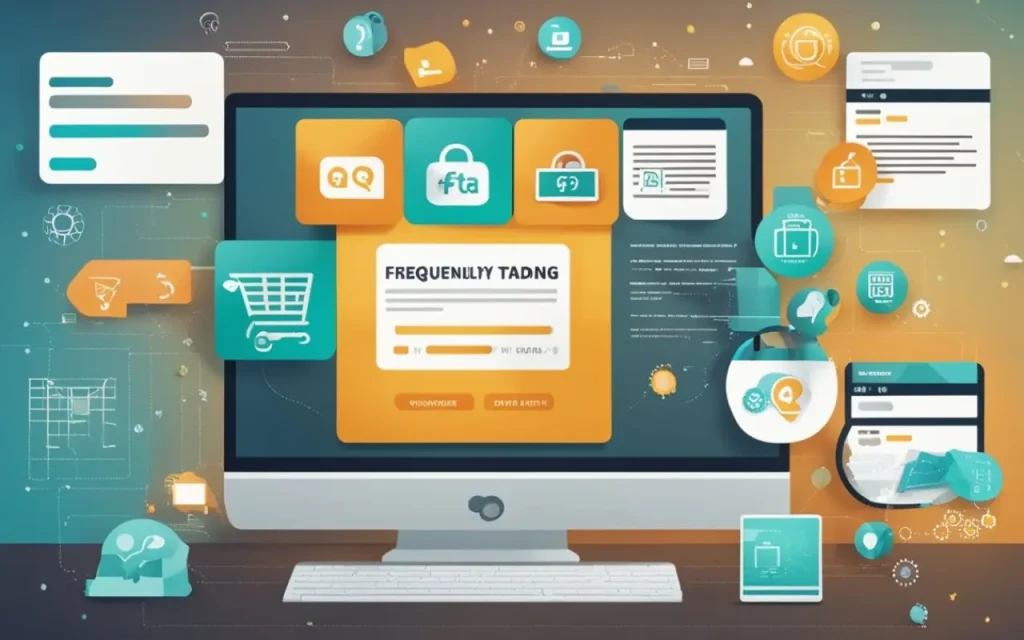
FTAsiaTrading Ecommerce is a game-changer in the world of online shopping, offering a dynamic and user-friendly platform for both buyers and sellers. With a focus on simplicity, ease of use, and AI-driven personalization, FTAsiaTrading ensures a seamless shopping experience for millions globally. This emerging leader in digital marketplaces connects businesses and consumers with effortless navigation and a diverse product range.
As online shopping continues to grow, FTAsiaTrading stands out by providing robust tools that help retailers optimize their operations and enhance customer satisfaction. Its platform caters to small startups and large corporations alike, fostering efficient international trade through transparent and scalable solutions. The ease with which users can interact with this global marketplace speaks to its success in transforming traditional ecommerce dynamics.
FTAsiaTrading not only facilitates commerce but also supports growth through comprehensive services that address every aspect of the shopping experience. From logistics support to competitive pricing, it offers a complete solution for businesses aiming to thrive in a fast-paced digital market. This ensures that both new and experienced shoppers find exactly what they need with minimal effort.
Key Takeaways
- FTAsiaTrading emphasizes simplicity and AI-driven personalization.
- It offers scalable solutions for businesses of all sizes.
- The platform simplifies international trade with comprehensive support.
E-Commerce Market Dynamics
E-commerce has transformed how businesses and consumers engage. Key elements such as online shopping evolution, user experience, and marketplace security influence this digital landscape.

Evolution of Online Shopping
The rise of e-commerce has reshaped retail. The shift from physical stores to digital platforms has allowed consumers to shop anywhere, anytime. As technology progressed, mobile commerce gained traction, making shopping on smartphones and tablets increasingly popular.
Marketplaces like Amazon have broadened consumer access to global products. This shift also benefits small businesses. They can enter broader markets without significant overhead costs. Various business models, such as B2B and B2C, allow flexibility for all types of vendors. Product recommendations, driven by AI, enhance personalization and have become a standard expectation.
The Importance of User Experience in E-Commerce
User experience is crucial in e-commerce. An intuitive and user-friendly interface can significantly boost consumer satisfaction. A seamless shopping experience also improves sales conversions. Websites that are easy to navigate encourage customers to explore and purchase.
Consistent navigation and clear layout design help users find information quickly. E-commerce platforms employ AI to recommend products based on user behavior. This personalization is key to meeting consumer demands. Understanding consumer behaviors is vital to crafting an inviting and efficient online market atmosphere, ensuring that online businesses stand out in a competitive space.
Security and Trust in Digital Marketplaces
Security is paramount in building trust within digital marketplaces. Users must feel their information is protected when they make transactions. E-commerce platforms implement various security measures to safeguard data. These include encryption, two-factor authentication, and secure payment gateways.
Fraud detection systems are essential to prevent unauthorized access and financial loss. Secure transactions are not just about technology but also about building consumer confidence. Trust is a currency in e-commerce; without it, consumers are less likely to engage. Enhancing security not only protects users but also strengthens the credibility of the online business.
Optimizing Ftasiatrading E-Commerce Operations
To thrive in the competitive e-commerce landscape, FTAsiaTrading focuses on enhancing customer satisfaction, leveraging technology to boost efficiency, and expanding its global reach. These strategies help maintain a leading position in online trading and retail.

Enhancing Customer Satisfaction and Support
FTAsiaTrading emphasizes a customer-centric approach to improve the overall shopping experience. A wide product range combined with personalized service ensures that diverse customer needs are met. Implementing features like product recommendations can increase customer engagement.
Effective customer support is vital. Utilizing chatbots for 24/7 assistance and a clear return policy contributes to higher customer satisfaction. By prioritizing helpful and reliable support, FTAsiaTrading fosters customer loyalty.
Leveraging Cutting-Edge Technology for Efficiency
Innovation is key to operational efficiency at FTAsiaTrading. Deploying data analytics allows for personalized shopping experiences and informed business decisions. Technologies like blockchain enhance reliability and transparency in transactions.
Investments in automation tools streamline processes. Automation in inventory management, payment options, and marketing tools reduces operational costs. These improvements support continuous improvement in online retail.
Global Expansion and International Trade
FTAsiaTrading is committed to global reach and economic growth by penetrating international markets. International shipping solutions make products accessible worldwide, while competitive pricing attracts a diverse customer base.
Data-driven insights guide strategic decisions in global expansion. Understanding local markets helps FTAsiaTrading adapt marketing strategies and payment methods for each region. This approach ensures sustainable growth in the global e-commerce platform market.
FAQs
Who are the leading e-commerce companies in Asia?
Asian e-commerce has giants like Alibaba, JD.com, and Rakuten. These companies dominate the market with extensive online retail networks and diverse product offerings.
Does Amway operate as an online e-commerce business?
Yes, Amway utilizes e-commerce through its online platforms to reach customers. They facilitate product purchases, providing convenience and accessibility for users globally.
What is ‘etailing’, and how does it relate to e-commerce?
‘E-tailing’ refers to electronic retailing, which is purchasing goods through the internet. It is a core component of e-commerce, allowing consumers to shop online.
Can Zara’s online platform be classified as e-commerce?
Zara’s website is an example of e-commerce. It allows customers to explore products, make purchases, and manage orders entirely online, reflecting the brand’s commitment to digital retail.
What are the common e-commerce business models in Asia?
Key models include B2B (Business-to-Business), B2C (Business-to-Consumer), and C2C (Consumer-to-Consumer). Each offers unique features and benefits, catering to different market needs.
Which Asian e-commerce platforms have shown significant growth in recent years?
Platforms such as Shopee and Lazada have experienced notable growth. These platforms continue to expand their reach with user-friendly interfaces and competitive pricing strategies.









